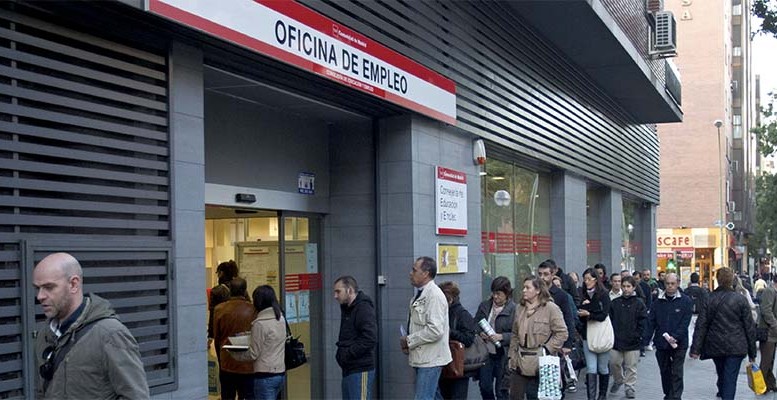Fernando Barciela | Spanish unemployment fell again in November, reversing a three-month upward trend. Last month, 27,000 fewer people were registered as jobless than in October, taking the total number of unemployed to 4.15 million. This is good news, given that at the peak of Spain’s economic crisis, the jobless rate reached a record 26.9%. There has also been a rise in Social Security affiliations, which increased from 16.3% in 2013 to 17.2% in October 2015.
Unemployment peaked at 26.9% in the first quarter of 2014. But now Spain is outpacing most of the rest of the European Union in terms of growth and job creation. Over the last 12 months, the number of unemployed people has dropped by 362,818. In Italy, the number of jobless has fallen by 70,000, while in France it has risen by 117,000. The Spanish Labour Minister said last week that “this year will be the year in which the fall in unemployment will be the most important in Spain’s history,” thanks to the creation of about 600,000 new jobs.
This improvement will boost Prime Minister Mariano Rajoy’s chances of winning the December 20 general elections, which are very focused on the unemployment issue and the poor quality of jobs. All the opposition parties have tried to squash what they refer to as the government’s triumphalism by turning the spotlight on the quality of Spain’s recently created jobs. Most of them are temporary, provide little protection, offer low lay-off payments, and usually dismal pay. During 2013, the average annual wage for temporary employees dropped 2.9% to €15,433, while that of permanent employees rose 0.2% to €24,333.
The opposition recalls that for example, Spaniards signed 1.47 million short-term contracts in November and only 132,867 indefinite contracts. So far, this means that 90% of the employment contracts signed last month have been temporary; about one in four contracts are for seven days or less.
And it’s correct what the opposition and trade unions say: most of the contracts are temporary. But saying this hides the reality. Workers sign many more temporary than indefinite contracts just for that, because they are weekly or monthly and have to be signed several times a year.
In any event, it would be very daring to ask a government to create only quality jobs after the most severe crisis of the last 70 years. That said, and reckoning that the rate of temporary contracts in Spain is 10 points higher than the EU average and every EU country, except Poland, we should note that this rate now stands at 26% compared with over 30 percent in 2007. And in November, full-time long-term work contracts grew by 15.8% from a year earlier.
Furthermore, the Socialist party wouldn’t improve the situation if they carry out what they have announced: eliminate labour market reforms and make labour laws stricter again. In order to put an end to its temporary contract economy, Spain needs more flexibility. Everybody knows that Spain’s labour laws still discourage companies from hiring permanent employees. Workers still have the right to a 33 days per year worked lay-off payment (or 20 days if the employer is losing money), which is much more than the European average.
The only party which wants to change this and do away with the so- called labour market duality is Ciudadanos. They propose eliminating temporary contracts and giving every worker the same single contract. This contract would offer employees more protection than a temporary one, but less lay-off payment than the current long-term agreements, for example maybe 10-12 days per year worked.





